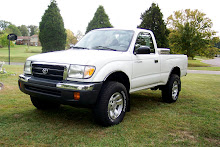Simply put, octane is a measure of gasoline's ability to resist detonation, which you hear as pinging and knocking in your engine. The higher the octane the more the fuel can be compressed without detonating before you want it to. Detonation, ping, knock, whatever you want to call it, occurs when the air/fuel mixture ignites before the spark plug fires. The mixture ignites from compression and not from the flame of the spark plug. In other words, the higher the octane the less likely it is to ignite prematurely. The only benefit to a high octane fuel is that it allows an engine to run at a higher temperature and with a higher compression ratio without pinging. Higher octane fuel does not provide more energy, more power, better mileage, more torque, burn cleaner, clean your engine, and is not better for the environment. If the engine is pinging when using the correct octane fuel, then it may be necessary to move to the next higher octane to prevent pinging, and damage to your engine, unless there is another problem. If you are using higher octane fuel for any of these reasons, STOP, you are throwing your money away. Also, never use a lower octane fuel than is recommended by the manufacture. If the manufacture recommends 89 octane then use 89. If they recommend 87 then use 87. The key is what was the engine designed to run at to achieve optimum performance and mileage? One exception is when you are towing a heavy load with a vehicle designed to run on 87 and you experience pinging. In that case it may become necessary to switch to 89 while towing. In conclusion, race car engines are designed to run on high octane fuels due to their high compression engines. You cannot make your engine a race engine just by upping the octane. Save your hard earned money, and use exactly the octane you need.
On this blog you will learn the basics of keeping you car in good shape. We will discuss how to perform maintenance that anyone with a basic set of mechanics tools car accomplish. We will not get into rebuilding engines, or anything that requires more than a basic understanding of cars. You can save lots of money by doing this scheduled maintenance yourself. Why trust and pay someone else to change your oil, when you can easily do it yourself. (Click Titles of Posts for more info)
Subscribe to:
Post Comments (Atom)
About Me

- clay58
- Mayfield, Ky, United States
- Retired and have been working on automobiles for over 50 years. I have learned that the best way to care for your car is to DIY. I personally do not trust the kid working at Spiffy Lube to change my oil. If, I want it done right I do it myself. Automobiles today are very complex but some things you can still do yourself. I have years of experience working on all kinds of vehicles and want to pass along what I have learned to those wishing to DIY.
Products & Websites I Recommend
Blog Archive
- October 2008 (11)
- November 2008 (1)
- December 2008 (1)
- February 2009 (1)
- March 2011 (1)
- July 2012 (1)

No comments:
Post a Comment
Note: Only a member of this blog may post a comment.